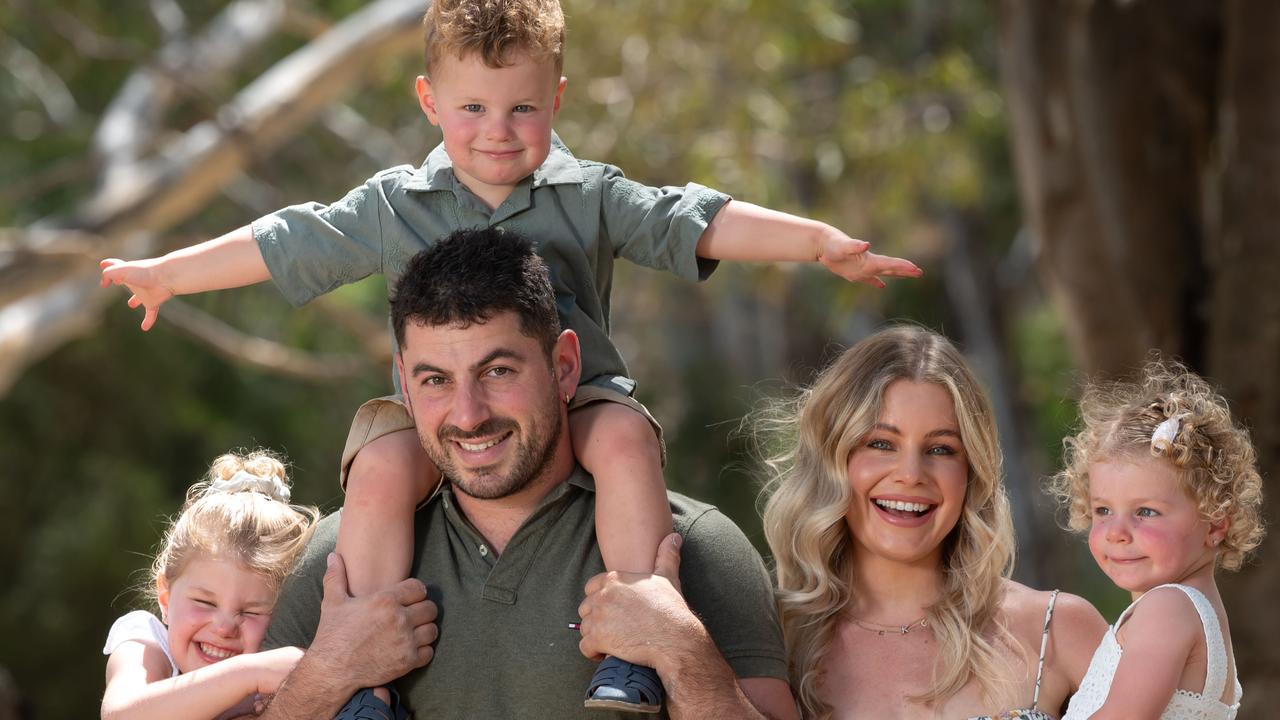Mum-of-two Diane Brash shares the true horrors of being addicted to meth
She had a comfortable life, a property portfolio, holidays in exotic locations but trying meth at a party triggered an addiction that led to this mum-of-two being locked up and losing her kids.
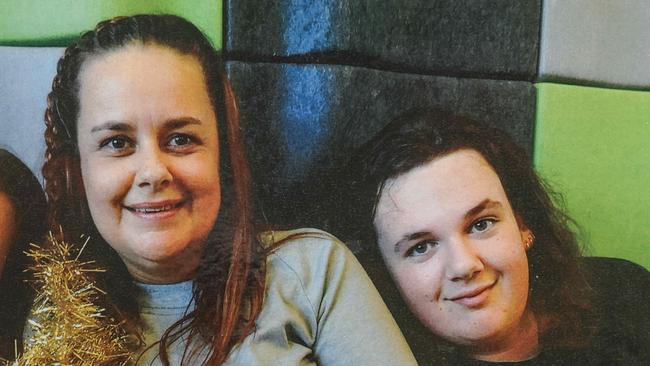
SA Weekend
Don't miss out on the headlines from SA Weekend. Followed categories will be added to My News.
Diane Brash was a busy, working mum in her early 30s with an ordinary, suburban life, tackling the school run and making daily lunches for her two young children.
But in a crazy, uncharacteristic snap, she tried methamphetamine at a party – setting her on a treacherous path that would see her become a drug dealer, lose her comfortable way of life, tear her from her kids and send her to jail.
“Life took a bit of a detour,” says the now 50-year-old, who spent two years in prison but has rebuilt her life with the loving support of family and today prioritises giving back to her community.
“People would be surprised about who is actually using drugs. Here I was, a mum with two kids and I was using every day.
“I was a shit person but now I’m trying to turn my shit experience into positive things.”
Before she became an addict, Brash was living a comfortable, everyday life.
She was married with two children she adored, worked as a chef at her family’s play cafe, had a property portfolio with her dad, Merv, and was close to her “awesome sister and beautiful brother”.
“I was happy, we’d go on holidays – we did New Zealand, Bali, Queensland. It was just normal,” she says.
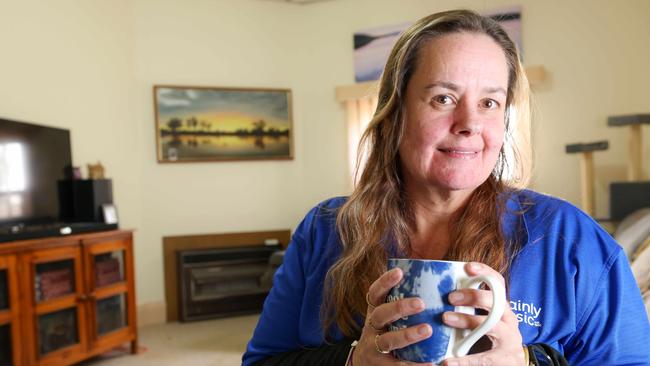
Brash, who was 33 at the time, had just finished breastfeeding her daughter, Charley, and was at a party with her then-husband when she was offered a hit of meth.
“I wasn’t educated, didn’t know what it was, didn’t know what it would do, didn’t know it was addictive,” she says.
“It was a couple of times, try it and have fun, all good. Then look ahead a month or two, let’s have a bit of fun again.
“It keeps you up all night, you get lots done, you’re motivated, you’re chatty, have in-depth conversations with people. It is fun for a while and then it all turns to shit.”
Before long, Brash was using all day, every day – but she was blind to the fact that she was an addict.
All the while, she kept up the suburban mum routine of school drop-offs and pick-ups and making meals, fooling herself that she did not have a problem.
“I didn’t see it,” she says. “I didn’t know I was an addict, a functioning addict.”
But the signs were glaringly obvious to Brash’s son, Joel.
When he was just nine years old, he would find her furiously cleaning the house at 2am – mopping floors, sweeping and wiping down walls. He also discovered drug paraphernalia around the house – despite Brash’s best attempts to hide it – and felt that his mum was disconnecting from their family life.
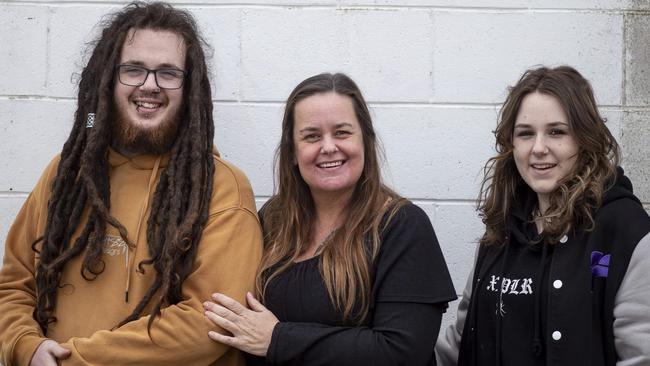
“I definitely knew, even though I was only young,” says Joel, who is now 23.
As the drug use spiralled, Brash’s life began to fall apart. Her marriage broke down, she lost her investment properties and was barely emotionally present when her mum died of leukaemia.
Almost every hour of every day became a quest to get high. To fuel that voracious habit, she eventually turned to dealing.
“My life was get up, use, catch up with people, drive around to people’s houses, drop the kids off at school, pick the kids up from school, make the kids a meal and then socialise, catch up, sell,” Brash says, and adds proudly: “I still have my own teeth – I’ve been very lucky.
“I was dealing big numbers. You think back on it and think: ‘Really, what were you thinking.’
“I was a shit person. I sold to fund my habit but didn’t see I had a habit – I didn’t see that until I’d been in jail for a year and then I just went ‘you know what, I was an addict’.”
After 10 long years of using and dealing, the walls came crashing in on Brash, who “never had any problems with the police before I was a dealer and I’ve never had any problems with them since”.
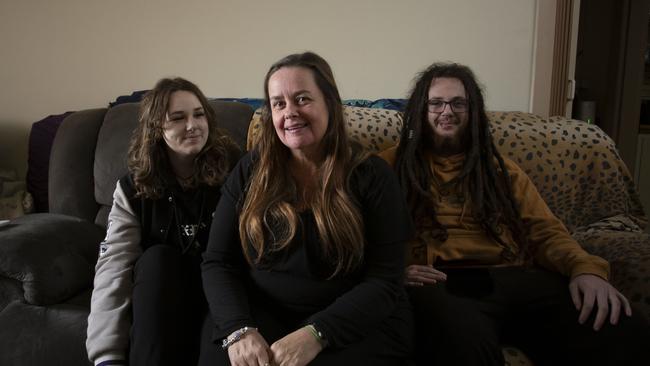
Police raids led to charges, home detention bail and – after failing a routine urine sample – incarceration.
“I went eight days without any gear, any ice, and I still tested positive,” she says. Her bail was immediately revoked. “I took my jewellery off, left everything at home and left the keys with my friend. I wasn’t able to say goodbye to the kids. They came home and I was gone. And they didn’t see me for probably two weeks because the first week that you’re arrested, you’re up in high security and you can only make phone calls from 9am to 3pm and my children didn’t get home from school until 3.30pm.
“To come home and have their mother not there would be pretty rough.”
Joel, then 16, says discovering that his mum had been taken away by police left him numb.
“I’d sort of switched off my emotions by then,” he says.
“I had to step up, in my own ways, and help to raise my sister through that period.”
Brash spent her first few nights in the D wing of Adelaide Women’s Prison, struggling through the sweats and delirium of being forced to go cold turkey before being moved to high-security.
In that terrifying beginning, she was allowed three-minute showers between 6am and 7am or 6pm and 7pm, and if she missed the 7am wake-up she would be locked in her tiny cell with its corner toilet all day.
“High security was really bad. They ramp your room every day, pull everything apart,” she says. “I didn’t know who I could talk to, who I could trust, you just keep quiet, keep to yourself. There were lots of broken women. It’s dangerous in there because of the addiction.”
After two weeks, Brash was moved again, this time to the mainstream section, where she spent six weeks sharing a room with three other women before seeing out the rest of her time in low-security – a “big caravan park” with gardens, karaoke, a gym and library and the ability to cook meals. “But there was barbed wire everywhere to remind us of where we were,” she says.
That’s where she was stationed when she came before the courts for sentencing in 2017 after pleading guilty to five counts of commercial trafficking. Appearing via video link from prison and confused by the courtroom protocols, she struggled to keep up with the District Court judge as the verdict was delivered.
Too afraid to ask a question, it was not until she spoke to her sister that night that she realised she would be behind bars – and separated from 10-year-old Charley and Joel, who was in Year 12 at the time – for the next two years.
“I didn’t really understand the court process, I had no idea what was going on half the time,” says Brash, whose children lived with her sister and family while she was in jail.
Serving time was tough and dangerous. But Brash survived it with the support of her loving family, who would visit her every week.
“A lot of the women in jail are broken women and they’ve been through so much – domestic violence, broken homes – and I’m not one of those people. I had a beautiful upbringing with two lovely parents and an awesome family,” she says.
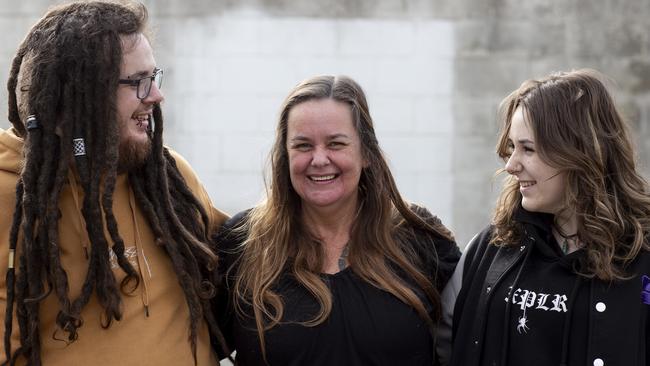
At the end of 2019, just before Covid hit, Brash was released to serve the rest of her sentence on home detention before being given parole.
Gripped by anxiety and fear, she walked through the prison gates on that day she “never thought would come”.
“The two years in jail felt like 20 – it’s just groundhog day,” she says.
“I was nervous about how I was going to cope – was I going to be able to stay clean, admit my past and do the right thing, be an okay mum? I’d forgotten how to be a mum.”
In the nearly five years since her release, Brash has had tough conversations with Charley, now 18, and Joel, who works in an ice factory – “We have a joke. He says: ‘Mum, I make more ice than you ever did,’” she laughs.
“I wasn’t able to feel the emotions of what happened to the kids at the time, that was not until at least a year of being clean and lots of conversations with them,” she says.
“It absolutely breaks my heart now. I own it, I own it all. My relationship with the two of them now is awesome, we have lots of conversations. About a year after I got out of jail, Joel just turned around one day and said: ‘Mum, I forgive you.’ And I burst into tears and it was like, okay, I can move forward.”
For his part, Joel has found peace.
“As shit as it is, I don’t regret that any of this happened,” he says. “It 100 per cent helped make me who I am.”
Charley, who has few memories of her mum before she went to jail, says it “made me grow up a lot quicker … it made me see a different side of things”.
Incarceration isn’t the only price Brash has had to pay for her habit.
She also suffered physically.
The ravages of methamphetamine accelerated a devastating genetic heart condition, pulmonary artery hypertension, which has now caused lung failure.
“I would have got it when I was 70 or 80 but because of my drug use, it’s been brought on early,” she says, adding she was taken to medical appointments at the Royal Adelaide Hospital in wrist and ankle shackles while she was in prison.
“I’d be dead if I hadn’t been sent to jail. I had a near-death experience but I didn’t know that.
“I’m very healthy now with a lot of medication, I’m very well managed – I have an awesome cardiologist, Dr Peter Steele. He says I am a success story at the moment and I’m not deteriorating, however, who knows where the next 10 years will be.”
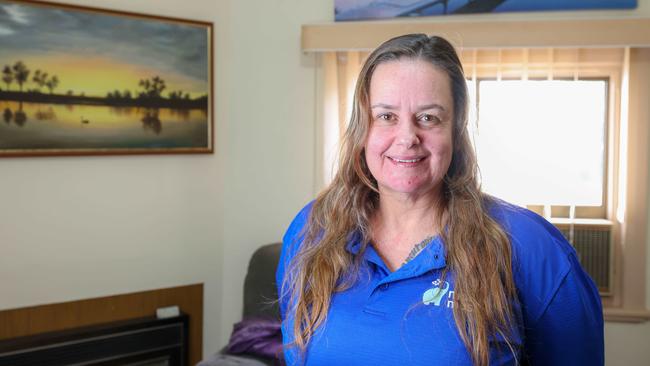
Today, a grateful Brash devotes her time to giving back to her community, including the Adelaide West Uniting Church congregation that helped bring her children to jail visits every week and still provides family support. She sometimes helps out in the church kitchen or at events and volunteers with its Mainly Music program, providing free lessons for children.
Every week, she’s helping to serve lunch and offers a guiding hand to women who have been released from prison at Kilburn-based service Seeds of Affinity. “Instead of being supported, I’m now the supporter,” she says.
As a Red Cross courtroom support person, she also shares her knowledge – acquired through bitter experience – with those appearing before the Adelaide Magistrates Court. “People come in with their home D (detention) bracelets on and I’ll be like: ‘Darling, I’ve been there.’ And then they talk about going to jail and I say ‘I’ve done that, too’ and they say: ‘Really, and look at you now,’” she says.
“I wanted to use my knowledge of what I’d been through to help others, there had to be something that I could do through the shit that I’d been through to help other people.”
Charley, whose Year 12 research project looked at how the criminal justice system affects an addict’s recovery, sees her mum being “able to change her life for the better”.
“She’s actually trying to make an active effort to improve things for people who are in a similar situation,” agrees Joel, who says there’s “no way in any form or lifetime that I would touch smack or crack or anything like that”.
“She’s been able to dedicate her time and effort into something she’s passionate about. She does nothing but try to help people or try to make people understand what it’s like to be in that situation because there’s this stigma around addicts that’s just so wrong. It’s not as black-and-white as it seems.”
For Brash, who now lives with her children and long-term partner and “rock”, Andrew, says it’s a way she can make a difference.
“I decided when I got out of jail, I would give back. Almost six years later, I’m still giving back because I actually really enjoy it,” she says. “Ice can get anyone, I’m just lucky that I got out.” ■
If you or someone you know needs help, call Lifeline on 1311 14 or visit lifeline.org.au





